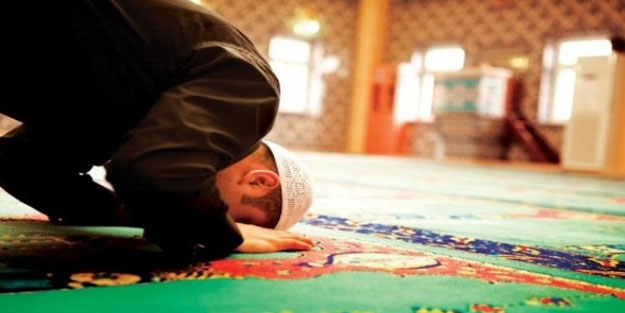What Part of the Nose Needs to Touch the Floor in Sujud?
Answered by Ustadh Sufyan Qufi
Question
In the book “Ascent to Felicity,” it is said regarding making prostration in prayer on p. 77 (note 220): “It is mandatory (wajib) to place most of the forehead, the hard part (bone) of the nose… on the ground.”
Is it really necessary (wajib) to place not merely the tip but the bone of the nose on the ground?
If so, what is the source of this rule?
I’m asking because it seems strange and probably can even harm the person if done fast when the surface (ground) is hard.
Thank you.
Answer
In the name of Allah, Most Compassionate, Most Merciful,
I pray this finds you in the best of states.
Jazakum Allah khayr for your question!
Yes, it is necessary (wajib) that the hard part of the nose touches the ground during the prostration. Thus, it is not permissible to suffice oneself during the prostration by having only the soft part of the nose touch the ground. [Ibn ‘Abidin, Radd Al-Muhtar]
Shaykh Faraz Rabbani mentions in his lessons that one shouldn’t be excessive about it, and one should definitely not press on the ground with one’s nose to the point of hurting oneself.
Allah, Most High, has said: “Allah intends (to provide) ease for you and does not intend (to create) hardship for you.” [Quran, 2:185]
May Allah Most High grant you the best of this world and the next. Please keep us in your du’as!
Wassalam
[Ustadh] Sufyan Qufi
Checked and Approved by Shaykh Faraz Rabbani
Shaykh Faraz Rabbani spent ten years studying with some of the leading scholars of recent times, first in Damascus, and then in Amman, Jordan. His teachers include the foremost theologian of recent times in Damascus, the late Shaykh Adib al-Kallas (may Allah have mercy on him), as well as his student Shaykh Hassan al-Hindi, one of the leading Hanafi fuqaha of the present age. He returned to Canada in 2007, where he founded SeekersGuidance in order to meet the urgent need to spread Islamic knowledge–both online and on the ground–in a reliable, relevant, inspiring, and accessible manner. He is the author of: Absolute Essentials of Islam: Faith, Prayer, and the Path of Salvation According to the Hanafi School (White Thread Press, 2004.) Since 2011, Shaykh Faraz has been named one of the 500 most influential Muslims by the Royal Islamic Strategic Studies Center.
